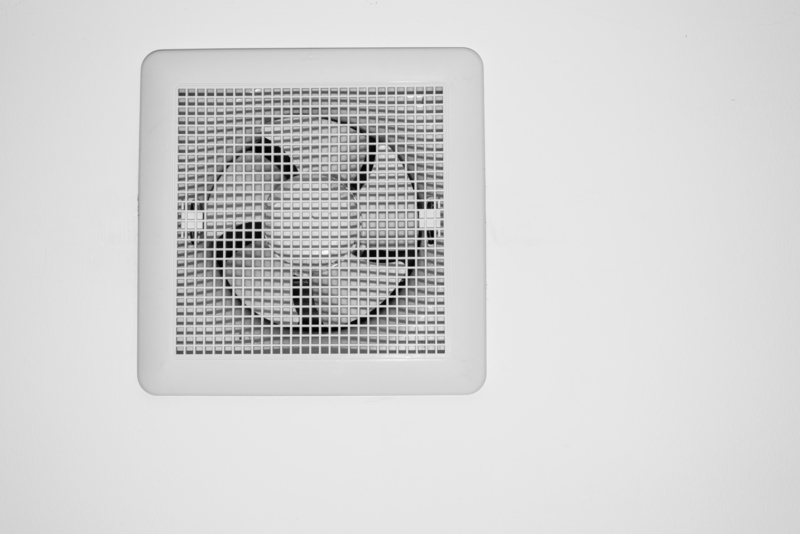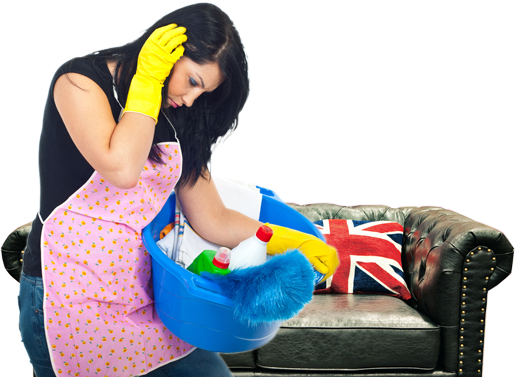Shine Bright: Advanced Techniques for Jewellery Cleaning
Posted on 14/08/2025
Shine Bright: Advanced Techniques for Jewellery Cleaning
Jewellery is more than just an accessory; it's a cherished expression of personality, sentiment, and heritage. Whether it's a sparkling engagement ring, a vintage heirloom, or your favorite pair of earrings, keeping your jewellery clean enhances its beauty and preserves its value. In this comprehensive guide, discover advanced and effective techniques for jewellery cleaning that will make every piece in your collection truly shine bright.
Understanding the Importance of Regular Jewellery Cleaning
Over time, jewellery can lose its lustre due to accumulation of dirt, oils, lotions, and atmospheric pollutants. Cleaning your jewellery regularly ensures:
- Preservation of brilliance and original shine.
- Extend lifespan of the metal and gemstones.
- Prevents damage caused by abrasive particles and grime buildup.
- Maintains hygienic standards, especially for pieces worn daily.
Advanced jewellery cleaning methods provide deeper cleanliness and protection, especially for intricate or valuable items. Read on to learn how to safely and effectively care for your treasures.

Know Your Jewellery: Materials Matter in Cleaning
Different materials require different care. Before starting any jewelry cleaning regimen, identify what your piece is made from. Common materials include:
- Gold and Platinum: Generally durable but can be scratched by harsh cleaners.
- Silver: Prone to tarnishing and may need polishing.
- Diamonds, Sapphires, Rubies: Tough gemstones but sensitive to specific chemicals.
- Pearls, Opals, Turquoise: Softer stones requiring delicate treatment.
- Costume Jewellery: May have glued stones and non-precious metals susceptible to damage.
Always check the manufacturer's recommendations before proceeding with any advanced cleaning technique.
Essential Preparation Before Cleaning Your Jewellery
To ensure optimal results from your jewellery cleaning session:
- Inspect each piece for loose stones, weak clasps, or damaged prongs.
- Gather necessary equipment: cleaning solutions, soft brush, lint-free cloth, bowl of warm water, and a sieve or strainer.
- Find a well-lit workspace and lay down a soft towel to prevent accidental scratches.
Preparation minimizes risk and prevents accidental loss of gemstones during the cleaning process.
Advanced Jewellery Cleaning Techniques
1. Ultrasonic Cleaners: Harnessing Technology for Deep Cleans
Ultrasonic cleaners use high-frequency sound waves to agitate a liquid, creating millions of microscopic bubbles that gently lift dirt and grime from intricate jewellery.
Steps for Ultrasonic Cleaning:- Fill the ultrasonic tank with the appropriate water and cleaning solution mix.
- Place your jewellery in the cleaning basket, ensuring pieces do not touch each other.
- Run the machine for three to five minutes. (Check manufacturer's guidelines for your particular jewellery.)
- Rinse pieces in clean water and dry thoroughly with a soft lint-free cloth.
Important: Avoid using ultrasonic cleaners for pearls, emeralds, opals, or vintage costume jewellery, as they may be damaged by vibration or immersion.
2. Steam Cleaning: Professional-Grade Brilliance
Steam cleaning is an effective way to sanitize and add sparkle, especially for diamonds, sapphires, and sturdy metals. Steam loosens and removes the toughest grime from hard-to-reach crevices.
How to Steam Clean Jewellery:- Use a dedicated jewellery steam cleaner (do not attempt with household appliances).
- Hold each piece securely with tweezers as you expose it to a focused jet of steam for 10-20 seconds.
- Allow jewellery to dry completely on a soft cloth.
Warning: Do not use steam cleaners on porous gemstones or glued settings. High heat and moisture can cause damage or stone detachment.
3. Specialised Cleaning Solutions
Commercially available jewellery cleaning solutions are formulated for specific metals and gemstone types. Here's how to use them:
- Read and follow all instructions precisely.
- Use only for compatible jewellery types.
- Always rinse thoroughly in clean water to remove chemical residue.
Never use harsh chemicals like bleach or household cleaners on jewellery. They can cause irreversible damage and discoloration.
4. DIY and Gentle At-Home Techniques
For pieces that cannot be cleaned using advanced machines, try these gentle at-home solutions:
- Warm Water & Mild Soap: Soak jewellery for 10-15 minutes and brush gently with a soft toothbrush.
- Baking Soda Paste (for sterling silver): Mix baking soda and water, rub gently on the silver, rinse, and polish dry.
- Aluminum Foil & Baking Soda Bath: Line a dish with foil, add hot water, a tablespoon of baking soda, and place silver pieces on the foil to naturally lift tarnish.
- Use a cotton swab to reach behind settings and intricate details.
Pro Tip: Always dry thoroughly after any at-home cleaning to prevent water stains or corrosion.
Polishing Jewellery for Maximum Shine
After cleaning, polishing is the secret behind professional-level jewellery brilliance. Different items require specific tools and techniques:
- Polishing Cloth: Double-layered cloths impregnated with special cleaners are ideal for gold, silver, and platinum. Rub gently in circular motions.
- Microfiber Cloth: Non-abrasive and perfect for gemstones and delicate surfaces.
- Jewellery Polishing Compounds: Available for metals only--use with extreme care and follow product instructions.
Do not use abrasive materials, paper towels, or tissues as these can scratch or dull your jewellery's surface.
Special Cleaning Tips by Jewellery Type
1. Diamond Jewellery
- Diamonds can withstand machine cleaning but should be inspected for loose settings first.
- For extra sparkle, soak diamonds in a cleaning solution and brush gently around and under the setting.
- Rinse thoroughly and polish for light-catching brilliance.
2. Gemstone Jewellery
- Softer gemstones (opals, pearls, turquoise) need surface cleaning with a damp, soft cloth and no immersion.
- For harder stones (rubies, sapphires), a gentle soapy water soak and soft brush usually suffice.
3. Gold and Silver
- Soak gold in a mixture of warm water and a few drops of dish soap, then polish dry.
- Silver benefits from anti-tarnish cloths or special silver dips followed by rinsing and drying.
4. Costume Jewellery
- Wipe gently with a just-damp cloth. Avoid immersion or harsh chemicals as stones may be glued, not set.
- Store separately to prevent scratching and moisture exposure.
Preventing Tarnish and Keeping Jewellery Clean Longer
The best way to keep your jewellery sparkling is to minimize buildup and tarnish in the first place. Here's how:
- Remove jewellery when showering, swimming, or using lotions, perfumes, and cleaning products.
- Store pieces in anti-tarnish pouches or lined boxes to limit air exposure and abrasions.
- Rotate your collection and avoid wearing the same piece daily, especially in humid conditions.
- Get professional checks on prong and clasp security annually, particularly for daily-worn items.
Expert-Recommended Professional Cleaning
If your jewellery is extremely valuable, antique, or includes delicate, rare stones, consult an expert jeweller for professional cleaning. Their advanced techniques and tools, including ultrasonic baths, steam cleaners, and specialized polishes, ensure optimal care and security for your treasures. Professional cleanings every 6-12 months are highly recommended for engagement rings and heirlooms.
Safety Precautions During Jewellery Cleaning
- Never clean over open drains or precarious surfaces--use a strainer or towel-lined bowl.
- Wear gloves when using chemical cleaners to protect your skin.
- Test all cleaning solutions on a hidden area first to check for adverse reactions.
- Rinse completely to remove any cleaner residues.
- Store cleaned pieces only after ensuring they are entirely dry.

Frequently Asked Questions about Jewellery Cleaning
How often should I clean my jewellery?
For pieces worn daily, such as wedding rings or favorite earrings, gentle cleaning every two weeks is ideal. Deep, professional cleaning should be considered every 6-12 months.
Can I use toothpaste to clean jewellery?
No, avoid toothpaste. While commonly suggested, toothpaste is too abrasive and can scratch metals and stones.
What is the safest method for cleaning pearls?
Use a soft, slightly damp cloth. Never soak pearls or use chemicals, as their natural surface is vulnerable to damage.
Should I clean antique or vintage jewellery at home?
It's best to consult a professional to avoid damaging delicate or irreplaceable items.
Conclusion: Preserve the Sparkle with Advanced Jewellery Cleaning
Caring for your jewellery is an investment in both its beauty and longevity. With these advanced jewellery cleaning techniques, you can confidently maintain and restore the brilliance of your cherished pieces--whether modern or antique. Always tailor your approach by material, use safe and thorough cleaning methods, and enjoy watching your jewellery collection continue to shine bright for years to come.
Remember, your jewellery tells your unique story--let every piece sparkle with the care it deserves!




